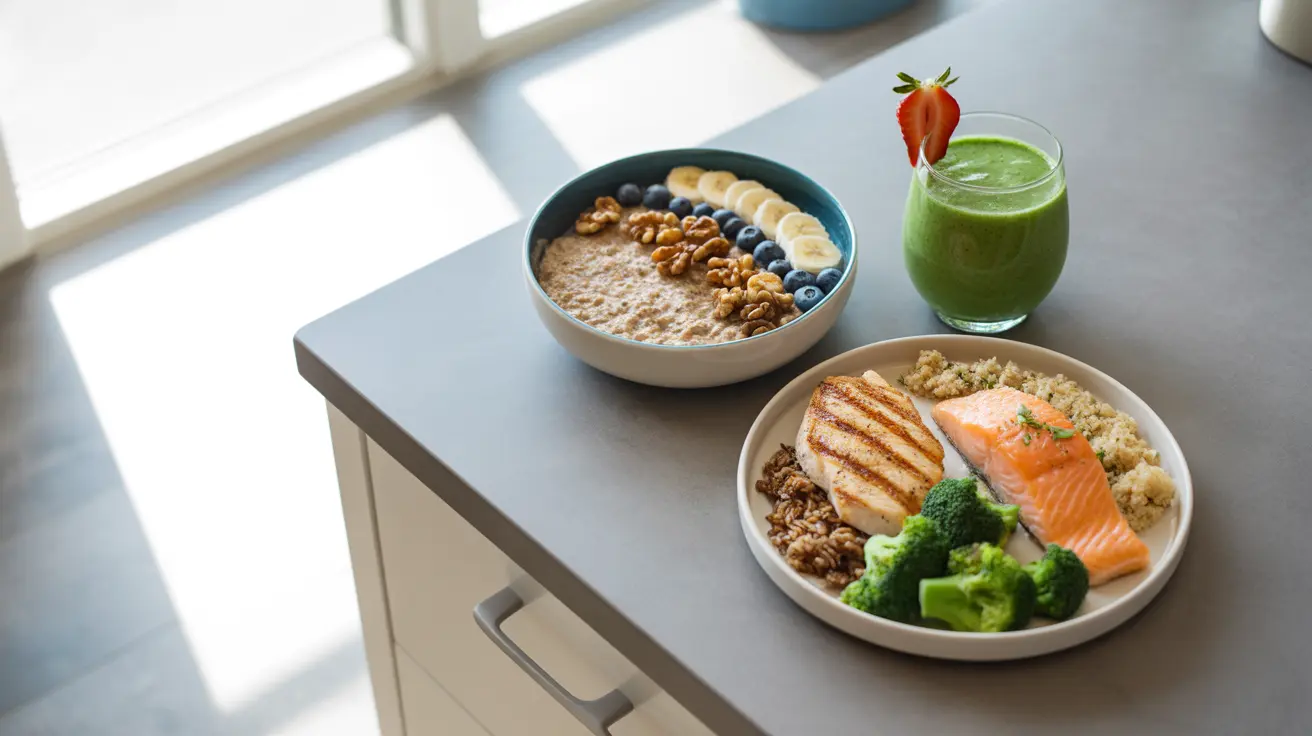Whether you're an athlete looking to build muscle mass, recovering from an illness, or simply need to gain weight, a 3000 calorie meal plan can help you reach your goals. This comprehensive guide will walk you through everything you need to know about creating and following a healthy, balanced high-calorie diet plan.
Understanding the 3000 Calorie Diet
A 3000 calorie meal plan provides significantly more energy than the average adult's daily needs. This type of diet is specifically designed for individuals who require additional calories for muscle growth, weight gain, or increased physical activity. It's essential to approach this dietary plan with proper knowledge and structure to ensure healthy weight gain.
Who Should Consider a 3000 Calorie Diet?
This high-calorie meal plan is particularly beneficial for:
- Athletes and bodybuilders in training
- People with naturally fast metabolisms
- Individuals recovering from illness or injury
- Those who are underweight and need to gain mass
- Extremely active individuals who burn many calories daily
Optimal Macronutrient Distribution
To maximize the benefits of a 3000 calorie diet, properly balancing your macronutrients is crucial. A general recommendation for muscle gain includes:
- Protein: 25-30% (187-225g)
- Carbohydrates: 45-55% (337-412g)
- Healthy fats: 20-25% (67-83g)
Structuring Your Daily Meals
Breaking down 3000 calories into manageable portions throughout the day helps ensure consistent energy levels and proper nutrient absorption. Here's a suggested meal timing structure:
Breakfast (700-800 calories)
Start your day with a substantial breakfast that includes complex carbohydrates, protein, and healthy fats. Consider options like oatmeal with nuts, protein powder, and fruit, or whole-grain toast with eggs and avocado.
Mid-Morning Snack (300-400 calories)
Include nutrient-dense foods like Greek yogurt with granola, or a protein smoothie with fruits and nut butter.
Lunch (700-800 calories)
Focus on lean proteins, whole grains, and vegetables. Try brown rice with grilled chicken breast and roasted vegetables.
Afternoon Snack (300-400 calories)
Choose protein-rich options like trail mix, protein bars, or whole-grain crackers with hummus.
Dinner (700-800 calories)
Include a balanced mix of proteins, carbohydrates, and healthy fats. Salmon with quinoa and steamed vegetables makes an excellent choice.
Evening Snack (200-300 calories)
End your day with a protein-rich snack like cottage cheese with fruit or a small protein shake.
Healthy Food Choices for Your Meal Plan
Focus on nutrient-dense foods that provide quality calories:
- Lean proteins: Chicken, fish, lean beef, eggs
- Complex carbohydrates: Sweet potatoes, brown rice, quinoa, oats
- Healthy fats: Avocados, nuts, olive oil, chia seeds
- Dairy products: Greek yogurt, cottage cheese, milk
- Fruits and vegetables: Bananas, dried fruits, leafy greens, starchy vegetables
Frequently Asked Questions
What is a 3000 calorie meal plan and who needs it?
A 3000 calorie meal plan is a high-calorie diet designed for individuals who need to gain weight, build muscle, or maintain weight with high activity levels. It's particularly suitable for athletes, bodybuilders, and people with high metabolic rates.
How should I balance macronutrients on a 3000 calorie diet for muscle gain?
For optimal muscle gain, aim for 25-30% protein (187-225g), 45-55% carbohydrates (337-412g), and 20-25% healthy fats (67-83g). This distribution supports muscle growth while providing adequate energy for workouts.
What are some healthy foods and snacks to include in a 3000 calorie meal plan?
Focus on nutrient-dense foods like lean meats, whole grains, healthy fats, and dairy products. Include snacks such as nuts, dried fruits, protein smoothies, and whole-grain sandwiches with protein fillings.
How can I structure my meals and snacks throughout the day to reach 3000 calories?
Divide your calories into 3 main meals (700-800 calories each) and 2-3 snacks (300-400 calories each). Space your meals every 3-4 hours to maintain steady energy levels and ensure comfortable consumption.
What are the benefits and risks of following a 3000 calorie diet for weight gain?
Benefits include muscle gain, weight gain, and increased energy for athletic performance. Risks may include unwanted fat gain if not combined with proper exercise, digestive discomfort if increased too quickly, and potential nutrient imbalances if not properly planned.




